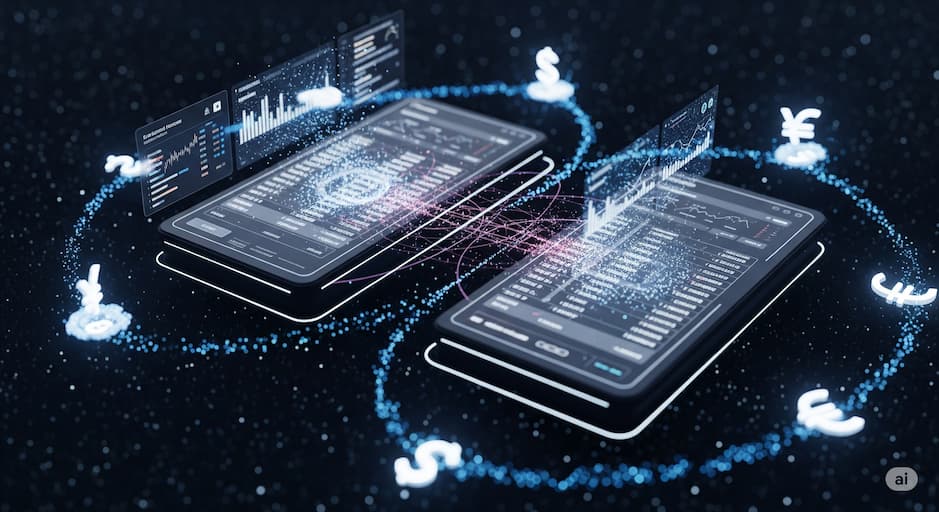In a country known for its rapid technological advancement, South Korea is now using AI for Real-Time Reconciliation of corporate transactions to transform financial operations. For businesses in Seoul and beyond, this innovation could mean faster, more accurate bookkeeping, smoother audits, and fewer financial surprises. But what exactly does this mean for everyday business owners, employees, and even the average citizen? Let’s break it down.
What is Real-Time Reconciliation, and Why Does It Matter?
Imagine you run a small business in Busan. Every time you make a sale or pay a supplier, a transaction is recorded. At the end of the day, week, or month, your accounting team checks if all records match across banks, books, invoices, and more. This process is called reconciliation.
Traditionally, this is a slow and manual task. Errors slip in. Payments get missed. Frauds go unnoticed.
But what if all your records automatically matched in real time, with alerts for any mistake, duplication, or delay? That’s exactly what real-time reconciliation offers.
And South Korea is doing it with AI.
Why South Korea’s AI Strategy is Ahead of the Curve
South Korea is already one of the world’s most connected societies:
- Over 92% of the population has access to high-speed internet
- The country ranks #1 in ICT development, according to the ITU
- Major conglomerates like Samsung, LG, and Hyundai are heavily investing in AI
With a government push for a Digital New Deal, AI has become central to streamlining everything from public health to fintech. One specific use case? Transactional reconciliation.
Understanding the Core Technology: AI for Real-Time Reconciliation
Here’s how it works:
- Data Collection: AI systems are plugged into various data sources—bank feeds, payment gateways, ERPs, and invoicing software.
- Pattern Recognition: The AI detects normal behavior by studying historical data.
- Matching Engine: When a new transaction appears, the AI matches it against expected entries.
- Anomaly Detection: If something seems off—a missing record, unusual amount, or wrong vendor—it flags it instantly.
- Real-Time Alerts: Businesses get notified within seconds, not days.
This reduces the workload for accounting teams and drastically cuts down on human error.
LSI Keywords:
- corporate transaction automation
- AI in finance South Korea
- real-time financial auditing
- fintech innovation Asia
Real-World Examples from South Korea
1. Shinhan Bank
One of Korea’s largest banks, Shinhan, has implemented an AI-powered financial assistant that automates reconciliation for corporate clients. Businesses using this system report up to 90% time savings in financial closings.
2. Samsung SDS
Samsung’s IT solutions arm uses AI to manage internal financial operations. It automates matching of over 100,000 transactions per day, reducing manual reconciliation errors by over 85%.
3. Startup Scene
Korean startups like Qraft Technologies are using AI for finance-focused automation, helping smaller firms get access to tools that were once only affordable for large corporations.
What Does This Mean for the Average Business Owner?
For a mid-sized manufacturer in Daegu or a retail chain in Incheon:
- Faster closing of monthly accounts
- Improved transparency in audits
- Lower chances of financial fraud
- More confidence in daily cash flow
Plus, as AI becomes more affordable, even small businesses can plug into these systems through cloud-based accounting tools.
Challenges Along the Way
- Data Privacy: Real-time processing means more sensitive data is shared across platforms. Korean regulators are enforcing strict rules on cybersecurity.
- Integration Gaps: Many older systems in local businesses are not yet compatible with AI reconciliation tools.
- Training Needs: Staff must learn to work alongside AI systems. Digital literacy is a growing priority.
The Bigger Picture: Global Implications
South Korea’s approach is influencing fintech policies across Asia:
- Singapore and Japan are watching closely
- ASEAN countries are exploring similar reconciliation models for cross-border trade
This matters for multinationals operating in Asia or importing/exporting through South Korea.
The Cultural Fit: Why AI Works in Korea
Cultural traits like precision, punctuality, and a national embrace of technology make AI adoption smoother in South Korea.
- High smartphone penetration
- Eager early adopters of new digital tools
- Government incentives for tech adoption
What the Future Holds
We may see:
- Blockchain-integrated reconciliation
- AI chatbots for financial Q&A
- APIs linking small vendors to big enterprises
The goal is a fully connected financial ecosystem where reconciliation is not just real-time, but predictive.
Practical Takeaways for You
- Own a business: Explore cloud-based tools like QuickBooks or Xero with AI plugins
- Financial Professional: Upskill in AI tools and data analytics
- Policymaker: Watch Korea’s model for ideas on scalable fintech regulations
Conclusion: South Korea’s Lesson for the World
AI for real-time reconciliation isn’t just a trend—it’s a quiet revolution that makes financial systems more efficient and trustworthy. South Korea shows us how this can be done smartly, securely, and at scale.
Would you trust AI with your business finances? That future might already be here.
Reference:
- Ministry of Science and ICT, Korea – Digital New Deal Program: https://english.msit.go.kr/
- ITU Global ICT Development Index 2023: https://www.itu.int/en/ITU-D/Statistics/Pages/publications/mis.aspx
- Shinhan Bank AI Report, 2023: https://www.shinhan.com/
- Samsung SDS Case Studies, 2024: https://www.samsungsds.com/
- Qraft Technologies Press Releases: https://www.qraftec.com/






